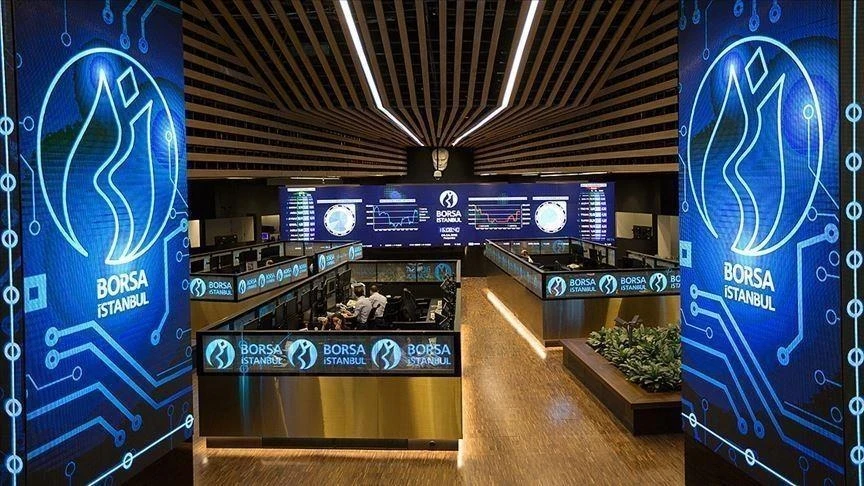Borsa Istanbul shuts down after 6.72% drop triggers circuit breaker
 Borsa Istanbul 100 Index (BIST100) represents the top 100 companies listed on the Borsa Istanbul stock exchange in Türkiye. (AA Photo)
Borsa Istanbul 100 Index (BIST100) represents the top 100 companies listed on the Borsa Istanbul stock exchange in Türkiye. (AA Photo)
Borsa Istanbul faced a turbulent start to the week. Escalating geopolitical tensions and disappointing U.S. economic data sparked a significant sell-off, leading to the activation of the circuit breaker and a temporary halt in trading.
Why it matters
- Global market impact: The shockwaves from the U.S. non-farm payroll data, which fell short of expectations, have reverberated across global markets, intensifying concerns about a potential recession. This uncertainty has contributed to increased market volatility in Türkiye and beyond.
- Local implications: The immediate effect was felt at home as the Borsa Istanbul 100 Index plunged, leading to a halt in trading aimed at protecting investors from panic-induced losses.
Current situation
- Index performance: At the opening of the trading session, the Borsa Istanbul 100 Index fell 6.72% to 9,769 points. This decline marked one of the most significant in recent times, highlighting investor anxiety amid global and local economic challenges.
- Sector impact: The banking sector bore the brunt of the sell-off, with its index falling by 7.79%, while the holding index decreased by 5.97%. All sectors experienced declines, with banking emerging as the most affected.
Circuit breaker activation
- Trading halt: In response to the dramatic drop, the Endekse Baglı Devre Kesici Sistemi (Index-Based Circuit Breaker System) was triggered. This system is designed to mitigate investor panic and prevent significant financial losses by temporarily halting trading when the index experiences sharp declines of 5% and 7%.
- Detailed explanation: Borsa Istanbul implemented a trading halt at 09:55:22. This affected all trading in the Equity Market, Derivatives Market (VIOP), and Debt Securities Market’s Equity Repo Market. The break was scheduled to end at 10:30, with a staged resumption of trading activities.
Context, background
- Geopolitical concerns: The sell-off comes amid rising geopolitical risks that have further unnerved global markets. The uncertainty around these issues has compounded the financial market stress, leading investors to adopt a risk-averse stance.
- Economic data impact: The recent U.S. non-farm payroll report, released on Friday, revealed employment figures that fell short of expectations. This has heightened fears that the U.S. Federal Reserve may be delayed in its interest rate adjustments, which could have broader implications for global economic stability.
Next steps
- Resumption of trading: Trading in the Equity Market and related markets will resume at 10:30 a.m., with orders being collected at 10:20 a.m. and matching occurring at 10:25 a.m. The continuous trading method will be reinstated from 10:30 a.m. onward.
- Investor caution: Investors are advised to remain vigilant and consider potential risks as markets remain volatile. The situation underscores the importance of having strategies in place to navigate sudden market disruptions.
Bottom line
- Caution advised: “While it’s crucial to manage costs, prioritizing safety and security in investments remains paramount,” said Scot Glasberg, President of the Plastic Surgery Foundation, echoing sentiments shared by financial experts regarding the importance of informed decision-making in volatile markets.



